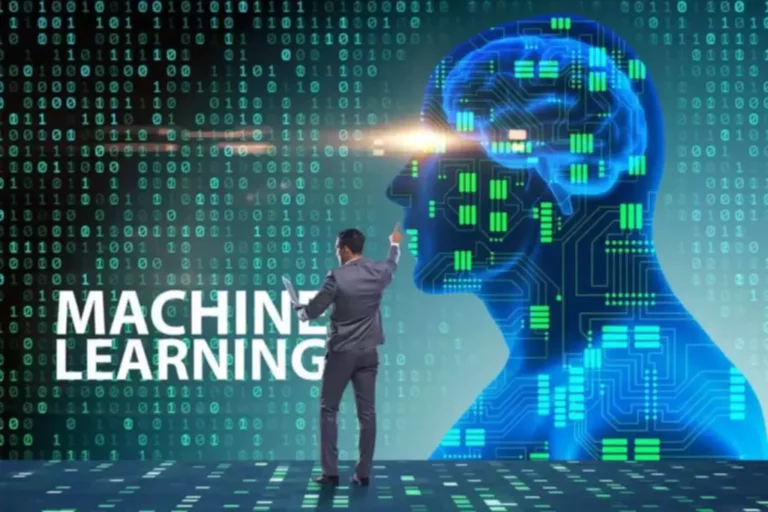The automotive business is on the cusp of a significant shift, thanks to advancements in synthetic intelligence. From manufacturing and design to gross sales and advertising, to service and maintenance, AI can play a role in making cars smarter, safer, and more environment friendly. The inevitable shift from hardware to software program in the automotive industry requires car manufacturers to reimagine their workflows and pay shut attention to relevant regulatory frameworks.

In the journey from car selection to the after-care experience, AI in automotive isn’t just an added feature—it’s a central player in redefining buyer expectations and experiences. AI’s function in remodeling automotive interactions marks a model new period in consumer engagement, the place every touchpoint is a chance to reinforce satisfaction and deepen brand loyalty. However, we’re already seeing organizations experimenting with these new expertise tools on a case-by-case basis and initiating the change-management efforts needed to scale solutions. They are capable of see how AI and ML can influence and influence their operational effectivity and raise consciousness amongst key manufacturing leaders on the potential of these solutions on their overall operations. AI is redefining the driving expertise, permitting for personalization that reflects the driver’s preferences and life-style. Automotive giants, such as Porsche, are pioneering using “Recommendation Engines,” which suggest automobile configurations tailor-made to individual tastes.
Ai Algorithms
This trend toward personalization is reflective of a broader social push for a more seamless and environment friendly purchasing process. In mild of ongoing provide chain points and delays, consumers have gotten much less affected person in relation to selecting and receiving their goods. To ensure a high-quality buyer experience, automobile producers can simplify their decision-making course of. While a share of business players implement third-party personal assistants like Alexa and Siri, some automotive firms have chosen to create their own state-of-the-art voice-recognition software. Such assistants can modify the temperature, provide details about the amount of gas in the tank, make calls, and change radio stations.

With AI in automotive, the journey forward isn’t just about reaching destinations however reworking the very experience of mobility. AI’s versatility shines in creating bespoke customer experiences, a testomony to its transformative energy within the automotive sector. From virtual assistants that guide buyers by way of the vehicle choice process to AI-powered recommendation engines that customize insurance coverage offers, AI in automotive stands at the forefront of personalizing the shopper journey.
Streamlining Manufacturing With Ai In Automotive
One of essentially the most well-known US-based automobile producers, General Motors, uses AI for the development of self-driving vehicles as part of its Cruise Automation subsidiary and for autonomous car inspection at its manufacturing amenities. By embedding IoT sensors into vehicles, refined AI techniques can predict engine failure and optimize battery performance based mostly on how drivers use the automotive. On high of that, there is a rising demand for AI-enabled insurance coverage, which may streamline claims settlements.

Artificial intelligence and its various applied sciences are serving to manufacturers overcome effectivity, cost, and a quantity of issues by automating and streamlining different processes. Artificial intelligence within the automotive business might help drivers and passengers take pleasure in a worry-free journey by facilitating alerts about potential dangers on a particular route and serving to with tasks such as parking and reversing. Risk evaluation and decision-making are the powerful outcomes of predictive analytics in each industry, and the automotive leaves no stone unturned when it comes to leveraging this AI technique to bolster driver security. Yet, with strategic foresight and ethical rigor, the trade is about to redefine the essence of mobility, making it safer, more efficient, and universally accessible.
Ai In Automotive: Transforming The Auto Industry
The application of AI in automotive spans a broad spectrum, from advanced driver assistance techniques (ADAS) and self-driving automobiles to AI in automotive manufacturing and supply chain optimization. AI automotive diagnostics tools represent a leap ahead in identifying and addressing automobile issues with precision and pace. Today, AI in cars manifests by way of subtle features similar to predictive maintenance, enhanced navigation, and personalized in-car experiences, marking a major leap toward creating more intelligent, extra responsive autos. This shift not solely underscores AI’s function in improving car functionality but in addition highlights its potential in shaping the future of mobility. AI has remarkably modified the automotive industry, disrupting vehicle functionality and consumer expertise.
However, a future the place driverless automobiles take over supply and public transportation is nearer than one might imagine. Deep studying and superior computer imaginative and prescient assist autos comply with visitors rules and safely drive with little to no human intervention. Artificial intelligence (AI) applied sciences have made the futuristic thought of self-driving cars a actuality.

For occasion, in June 2022, Hailo, an AI chipmaker, partnered with Renesas to seamlessly allow automotive clients to transition from ADAS to automated driving. With collaboration between Hailo and Renesas, sophisticated ADAS technology will be more accessible to automobiles of all types. With AI funding and growth on the rise, know-how’s influence on our automobiles and the general automotive industry will proceed to develop. From serving to individuals select the right car for his or her households to ultimately driving for them, I consider AI’s consumer-facing automotive use circumstances are a number of the most enjoyable we’ll expertise.
To higher perceive the impression and opportunity of these trends, we spoke with executives from main European automotive and manufacturing companies. The detailed discussions focused totally on gen AI and the lessons that are emerging from the many gen AI pilots and some at-scale deployments. To enhance these assistants’ performance, researchers are continuously working to develop AI that understands language’s many ambiguities and complexities. Thanks to significant advancements in the subject due to the accessibility of high-quality information, in-car assistants are shortly powering the introduction of AI into our cars. Historically thought-about some of the tough elements of AI era, voice recognition is powered through AI utilizing a combination of Natural Language Processing (NLP) and ML. Trained to interpret driver cues, voice recognition converts human speech into digital understanding.
Today, Porsche AI’s suggestions are greater than 90% accurate, with accuracy enhancing with every use and information enter. Monolith is well-known AI-based software in the engineering world used by many aerospace, automotive, and industrial engineering companies. In 2022, BMW, one of the world’s leading producers of cars and bikes, announced that its engineers at the moment are using Monolith in car development. More exactly https://www.globalcloudteam.com/ai-in-the-automotive-industry-benefits-use-cases/, BMW’s AI engineers use AI to accurately predict a automobile’s efficiency when it comes to aerodynamics without constructing physical prototypes. What’s more, BMW’s crash check engineering group additionally managed to use Monolith for predicting the pressure on a passenger’s tibia throughout a crash with out conducting physical checks and means earlier in the improvement course of.
Our Ai & Machine Learning Programs Length And Charges
AI in automotive isn’t simply augmenting the driving experience—it’s essentially altering the material of the automotive industry, laying down the roadmap for a future the place efficiency, security, and innovation are intertwined. One expected results of the four major developments is a marked shift in the industry’s worth swimming pools. This change may have an especially large impact on big automotive unique tools manufacturers (OEMs) and their business fashions, however the influence will be felt all through the industry and beyond. The products and services made potential by the developments won’t only have an effect on the business of all incumbent and conventional trade players but additionally open up the market to new entrants.
- The COVID-19 pandemic has compelled automakers to rethink their short-term strategy for redefining automation.
- Every yr, insurers pay out billions of dollars in fraudulent claims, and the value of fraud is mirrored in higher premiums for policyholders.
- Leveraging AI in automotive, particularly by way of autonomous driving technologies and AI-based navigation techniques, considerably reduces gasoline consumption, alleviates site visitors congestion, and ensures a smoother move of vehicles.
- Automating quality assurance ensures adherence to rigorous requirements, diminishes the need for reworks, and constantly secures top-tier product high quality.
As our world more and more embraces expertise, the worldwide market is witnessing the transformative emergence of synthetic intelligence (AI). This cutting-edge technology is reshaping numerous sectors, with the automotive trade on the forefront of this revolution. Leading automotive manufacturers are integrating AI into their operations, leveraging its potential to realize a aggressive edge, and offering prospects unparalleled, personalized experiences.
AI-powered systems supply immediate, round the clock assistance, revolutionizing customer support in the automotive sector. The quick and related help AI offers in car systems ensures that buyer inquiries and issues are addressed efficiently, significantly enhancing general buyer satisfaction. AI in automotive is reshaping CRM techniques, allowing brands to engage with prospects meaningfully and personally. Analyzing buyer behavior and preferences, AI in cars today crafts focused communications and offers, fostering brand loyalty and enhancing the client expertise at each touchpoint.
Importantly, these tools have high levels of personalization, which means they can bear in mind drivers’ preferences and counsel changes based mostly on the context and user historical past. Notably, the automotive industry has always been proactive in adopting rising applied sciences. Now, firms are more and more hiring automotive growth experts well-versed in AI to help them faucet into related automobile technologies, autonomous driving, and predictive maintenance. Today’s customers count on their cars to become as sensible and customized as their mobile units and personal voice assistants. In combination with AI, many emerging technologies and ideas, together with IoT knowledge analytics, cloud computing, 5G, and big data open up new horizons for interconnectivity between autos and the encircling environment. Berkeley DeepDrive BDD100k is probably considered one of the largest datasets for autonomous vehicles, which accommodates over 100,000 driving expertise movies recorded on the roads of California and New York.
Gartner predicts that the total variety of new vehicles equipped with autonomy-enabling hardware will rise from 137,129 models in 2018 as much as 745,705 items by 2023. The size of the global market of autonomous vehicles is expected to achieve as excessive as $37 billion. The company’s flagship automobile, named REV-1, is designed to operate in all climate conditions and has a dimension and weight that makes it versatile sufficient to change between car and bike lanes to prioritize delivery time without impeding visitors.

In the age of shortages and inefficiency, vehicle manufacturers also can harness well-trained information to create AI algorithms that understand their clients and their respective preferences. With this new know-how, I consider we will anticipate the vehicles we see on our commutes to turn into increasingly reflective of the folks driving them. As the CEO of an AI firm centered on high-quality coaching information, I’ve witnessed firsthand how the automotive business is harnessing AI in vehicle production.
AI and ML come to their rescue by helping managers systematically manage the supply chain modules. AI can be used for predictive upkeep and notifications for issues like engine and battery performance, as properly as insurance coverage applications that monitor driver behavior in calculating dangers and costs. Moreover, the expansion projections are staggering, with self-driving autos anticipated to symbolize 1 in 10 on the roads by 2030.
Use Cases Of Ai Within The Automotive Trade
Here are the first concerns the automotive industry needs to hint to ensure the profitable implementation of AI in autos. Traffic circulate administration is one of the most important areas within the AI automotive area that is anticipated to welcome transformation at the hands of emerging AI applied sciences like IoT. Discover more about our pioneering function in this revolutionary field, delve into our About Us page, be inspired by our Success stories, keep informed with our Blog, and attain out via our Contacts page. The street forward is paved with possibilities—embark on this journey with DATAFOREST, and let’s redefine the essence of mobility through the ability of AI in automotive. The RAG mannequin significantly enhances the output high quality of AI-driven decision-making systems, marking a pivotal innovation in AI in automotive navigation.






